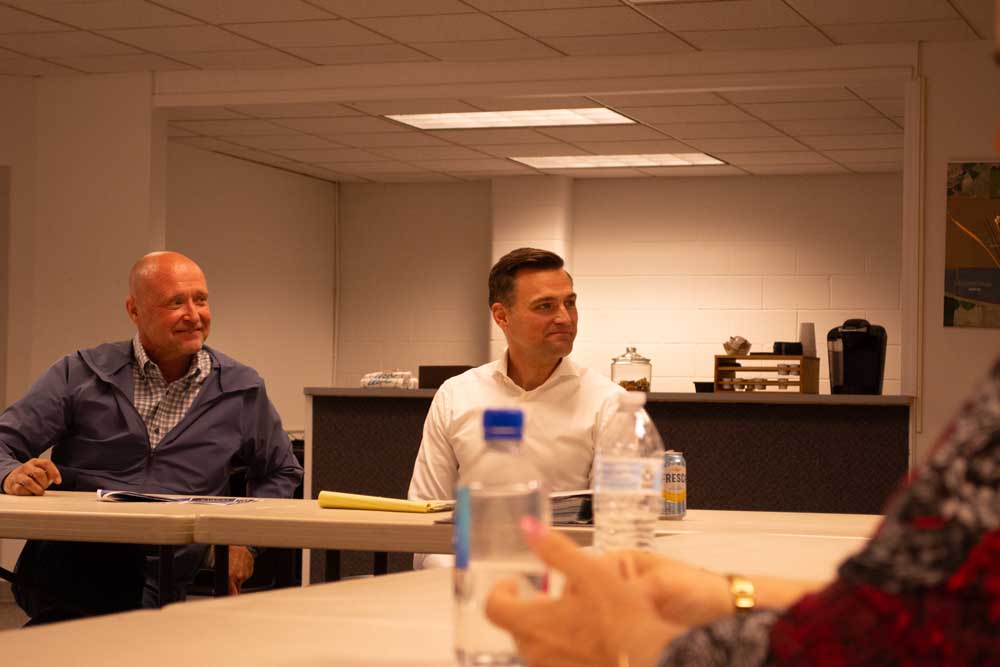Capital Chatter: Legislator has become a full-time job
Published 4:30 pm Thursday, September 12, 2024

- capital chatter logo
Anna Scharf has a part-time job that’s not part-time.
Trending
When Scharf was sworn into office as an Oregon legislator, Rep. E. Werner Reschke, R-Malin, told her: “Welcome to your new part-time job. If you do it right, it will be full time.”
In a late-August constituent newsletter, Rep. Scharf, R-Amity, recounted Reschke’s words and went on to say, “The Oregon Legislature claims to be a part time citizen legislature, but that is not my experience.”
For Scharf, who is a farmer, this also was harvest season. But her busy and complicated schedule is not unusual. From late August into early September, many legislators were producing newsletters and mailings that extolled their work. They had a deadline to beat.
Rep. Susan McLain, D-Forest Grove, is traversing Oregon with the Legislature’s transportation committee. She is co-chair with Sen. Chris Gorsek, D-Troutdale. McLain’s Sept. 5 newsletter noted the committee had received more than 600 pieces of written and in-person testimony during its “Transportation Safety and Outreach Tour.”
But now, the flood of official newsletters has stopped from many legislators.
During a 60-day blackout period before the Nov. 5 election, Oregon House and Senate rules bar members seeking office at the election from using state resources for communicating en masse with constituents, including newsletters and announcements about upcoming town halls.
“This rule was designed to make sure that elected officials aren’t using taxpayer-funded staff time and resources for pseudo-campaigning (i.e., telling everyone about our amazing accomplishments and how great we are right before an election!),” Rep. Lisa Reynolds, D-Beaverton, wrote in her Sept. 5 newsletter.
Such candidate-legislators may still carry on regular office work with individual constituents, conduct town halls, send press releases to the media — and, as many do, use campaign and personal email for mass newsletters.
Legislators not on the ballot are unaffected. That means half the Senate and any retiring lawmakers.
“My definition of a candidate is: any current member running in the general election, whether it be for the Legislature or other elected position,” said Senate Secretary Obie Rutledge, the chamber’s administrative officer. “So that interpretation is broad and not limited to the Senate.”
In an Aug. 28 email, Rutledge reminded senators that if they are candidates, they could not use state resources for mass mailings, notices or newsletters during Sept. 6-Nov. 5. The ban includes simply preparing such materials on a state-owned computer.
The House and Senate have their own rules, although the blackout provisions are similar.
House Rule 14.30 says: “Each member may issue legislative newsletters or other informational material to their constituents. Costs for newsletters and informational material may be billed to the member’s individual expense account. Such newsletters or other informational material may be distributed at state expense at any time during a member’s term … .”
The rule then gives the exception: 60 days before the primary or general election “if the member is a candidate for any election or reelection.”
Chief Clerk Tim Sekerak, the House’s administrative officer, said he gives this advice to members running for office: During the blackout period, do not use state resources, or third-party vendors paid for with state funds, to distribute to constituents anything in hard copy or electronic form “that meets the definition of a legislative newsletter or informational material.”
That means “official” social media accounts, too.
“This is because if the account is treated as an official element of the state office, and work on it is done while on the job, then it should be treated like a newsletter,” Sekerak said.
“Much has been done in court cases to clarify when an account possesses the trappings of office and indeed members can get in legal trouble by inappropriately blocking citizens from engaging with them via official social media. So, even though social media isn’t specifically listed in the rule, it’s still impacted because the theme is the same.”
The House rule defines “informational material” and “legislative newsletter” as material for the public “informing them of official activities of a legislator and/or concerning legislative related issues. Such material shall not be campaign material, serve partisan political purposes, or take a position on a citizen initiative.”
The House’s prohibition against opining on ballot measures is more restrictive than state law and marks a significant difference between the two chambers’ rules. The Senate does not have such a ban.





